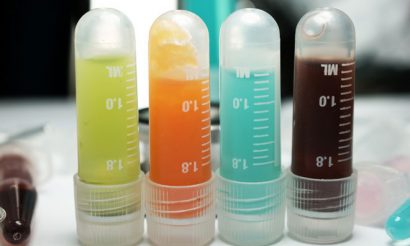Gut microbes linked to immunotherapy response in melanoma patients
Posted: 7 November 2016 | Niamh Louise Marriott, Digital Content Producer | No comments yet
Patients with malignant melanoma are more likely to respond to immunotherapy treatment if they had greater diversity in their gut bacteria, according to…


Patients with malignant melanoma – whose disease has spread – are more likely to respond to immunotherapy treatment if they had greater diversity in their gut bacteria, according to new research presented at the National Cancer Research Institute’s (NCRI) Cancer Conference in Liverpool.
Scientists at the University of Texas MD Anderson Cancer Centre studied over 200 mouth and over 100 gut microbiome samples from people who had advanced melanoma.
Bacteria in the gut
They discovered that people whose cancer responded to immunotherapy treatment had more diversity in the types of bacteria found in their gut. They also found significant differences in the type of bacteria found in the gut of people whose cancer responded versus those who didn’t.
There was no difference in the type of mouth bacteria between patients.
Pre clinical studies
Early studies in mice have shown that changing the type of bacteria that live in the gut can improve the response to immunotherapy, but this is one of the first studies to look at the link in patients.


Research vials used with immunotherapy
Immunotherapy, which harness the body’s immune system to target cancer cells, is an exciting avenue of cancer treatment. However, not all patients respond to these treatments, and researchers are trying to understand why.
Pre immunotherapy treatment
This research suggests that adapting people’s gut bacteria, such as giving antibiotics, probiotics, or a faecal transplant before immunotherapy, could increase the benefits already achieved with new immunotherapy drugs now being used to treat several different types of cancer. However, this needs to be tested clinical trials.
Dr Jennifer Wargo, lead researcher at the University of Texas, said: “Our research shows a really interesting link that may mean the immune system is aided by gut bacteria when responding to these drugs. Not all patients respond to immunotherapy drugs and it’s hard to know who will benefit from the treatment prior to it being given.
“The gut microbiome can be changed through a number of different strategies, so there is real potential here to modify the gut microbiome to boost an immunotherapy response.”
Cancer survivor Kara Million on the importance of HPV vaccinations
Dr Pippa Corrie, Chair of the NCRI’s Skin Cancer Clinical Studies Group, said: “There is growing evidence that gut bacteria play a vital role in warding off disease, absorbing nutrients from the food we eat, and maintaining normal function of our immune systems.
“Gut microbes have been shown to influence the role of conventional chemotherapy, so it’s probably not surprising that they impact on response to new immunotherapies being used in the clinic. Manipulating the gut flora may be a new strategy to enhance activity of immunotherapy drugs, as well as to manage problematic toxicity in the future.”
This research was funded by the Melanoma Research Alliance and by the Melanoma Moon Shot Program at MD Anderson Cancer Center.
Related topics
Immunotherapy
Related conditions
Melanoma
Related organisations
MD Anderson Cancer Center, Melanoma Research Alliance







